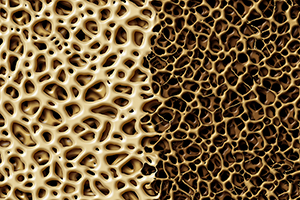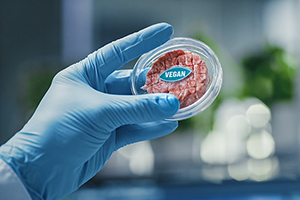



What is the body’s largest organ? Believe it or not, it’s our skin. It holds together and shields our muscles, tissues, bones and internal organs. It takes a beating from the environment and our lifestyles, yet protects us.
The health of our skin, more often than not, reflects our internal environment: the environment of the gut. Skin disorders such as acne, rosacea, hives, dermatitis (atopic eczema) and psoriasis can signal food or inhalant allergies, candida (yeast), leaky gut syndrome, stress, less than optimal eating habits and autoimmune responses.
Acne and rosacea, both inflammatory conditions, are aggravated by poor diet, which can suppress the immune system and set the stage for the overgrowth of opportunistic bacteria in the gut causing leaky gut syndrome. High sugar and refined carbohydrate intake coupled with stressful lifestyles often contribute to the bacterial overgrowth in the gut, which is often the culprit in breakouts and flare-ups. Acne is primarily caused by overactive sebaceous (oil) glands, usually in response to the hormone testosterone–even when testosterone levels are within normal ranges. Acne resolves very well with the elimination of dairy products and iodine-containing foods.
Rosacea is characterized by flushing of the skin—mainly the face–often lasting for several hours. Pustules can develop as a result, causing the characteristic swollen and ruddy appearance of rosacea. Elimination of dairy, alcohol, caffeine and spicy foods can help to ease rosacea, as does avoidance of sun, wind, temperature changes and stress.
Hives are typically caused by food allergies and environmental irritants such as chemical additives found in foods, soaps and detergents. Those with aspirin induced urticaria may find they’re sensitive to salicylates. Salicylates are naturally found in foods such as apples, pineapple, cherries, tomatoes, cucumbers, apricots, oranges, green peppers and peanuts. Elimination of the offending food(s) or additive(s) is critical to controlling flare-ups. See www.feingold.org.
Eczema is a general term for an itchy red rash that initially weeps or oozes and may become crusted, thickened or scaly. Similar to eczema, allergic dermatitis causes inflammation and irritation of the skin. Both eczema and dermatitis may be caused by food allergies, irritating chemicals, drugs, scratching or rubbing the skin, or even sun exposure. In both cases, a strict candida-free, sugar-free diet and avoidance of food allergens is key to stopping the vicious cycle of flare-ups. Supplementation with probiotics, antioxidants such as EGCG and zinc, and essential fatty acids such as EPA and borage oil have been shown to be beneficial.
Dermatitis herpetiformis is a chronic inflammatory disease characterized by extremely itchy bumps or blisters, which usually appear on the elbows, knees, buttocks and back. Many with this condition also are found to have gluten-sensitive enteropathy, or celiac disease. A strict gluten-free diet is necessary to help control the disease and sticking to this diet can remove the need for medications and prevent complications later on. At the Hoffman Center, it is our finding that even in the absence of celiac disease, many patients with stubborn skin disorders respond to a gluten-free diet.
Psoriasis, which is characterized by the overproduction of skin cells, is thought to be the result of an autoimmune response. We all develop new skin cells to replace old skin cells that are naturally sloughed off, but this process goes awry in psoriasis, with new skin cells being produced at up to seven times the rate! The best approach to treating psoriasis is a gluten-free, dairy-free diet coupled with supplements to modulate immune and inflammatory responses, such as Moducare, ashwagandha, Boswellia, fish oil, EGCG, bromelain, tocotrienols, curcumin, transfer factor, vitamin D (we like to see serum levels in the high-normal ranges), probiotics, vitamin C, zinc, selenium and InflamaSYN.
Along with the appropriate therapeutic diet eliminating dietary allergens, candida and sugars and other refined carbohydrates that feed harmful bacteria, the nutritional arsenal is full of helpful supplements to complement an elimination diet in achieving the following:
a) Destroy harmful bacterial overgrowth in the gut: Olive leaf, Oregacillin, Kyolic, Biocidin.
b) Reinoculate the gut with good bacteria (flora) restoring healthy gut ecology: Probiotics such as Dr. Ohhira’s Probiotics Original Formula, Vital-10 and Culturelle.
c) Enhance immune function to help the body rid itself of bacteria and fix leaky gut syndrome by repairing the ever-important epithelial cells of the gut: L-glutamine, lactoferrin, zinc, vitamin C, transfer factor, intestinal repair complex.
d) Reduce inflammation and quench free radicals associated with skin disorders: EPA, curcumin,ashwagandha, glutathione, EGCG.
e) Initiate protocols for healthy skin maintenance: Foundation Formula, Biosil, biotin, borage oil, EGCG, vitamin C, Maxi-Gamma Tocopherols, selenium, zinc, blueberry solid extract.
Skin disorders can be controlled and even cured with the proper therapeutic diet and supplementation. Cleaning up our internal environment and restoring the health of our gut ecology offers the best chance for success.
Leyla Muedin is a clinical nutritionist and lecturer at the Hoffman Center and is available for speaking engagements for private and public sector wellness programs. Please call (212) 779-1744 for more information.
Though we think of declining estrogen as the hallmark of menopause, it's actually common for…

Up to 12 percent of Americans have ulcers at some point in life. Peptic ulcers…
Gallbladder disease is a modern illness. An estimated 20 million Americans have gallbladder disease. The…

Lately, I’ve been sharing with Intelligent Medicine listeners that I’ve been augmenting my diet with…

Q: I am a 77-year-old woman. On recent bone density test, lumbar spine results range…

The 1973 sci-fi movie Soylent Green depicts a dystopian future in which over-population and environmental…

Q&A with Leyla, Part 1: Copper Supplements

Our virtual voicemail is open 24/7, so there's no need to wait to submit your questions for Dr. Hoffman. Leave a message, and you may hear your question featured on the Intelligent Medicine radio program!